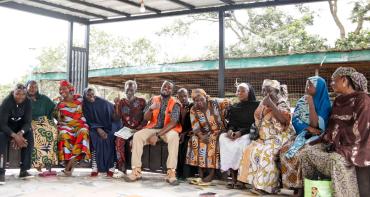By Amina Osman, Education Advisor, Commonwealth Secretariat
Education has long been a cornerstone of individual and societal growth. Beyond imparting knowledge, it empowers individuals to break the cycle of poverty, promote equality, and tackle global challenges. However, millions remain deprived of this potential, especially as new challenges like technological advancements and global crises arise.

Investing in education: A vital economic and social imperative
Currently, 128 million boys and 122 million girls are out of school, and 57% of the world's children lack basic skills. This stark reality demands urgent action from governments and partners. Significant investment increases are crucial to ensure all children complete a full basic education cycle by 2030. The economic impact of underinvesting in education, especially for girls, is staggering. The global economy loses over US$10 trillion due to this shortfall, with Sub-Saharan Africa alone accounting for US$210 billion – more than 10% of its GDP.
Recent data from UNESCO reveals that the global economy loses over US$10 trillion due to this shortfall. Sub-Saharan Africa alone accounts for US$210 billion – more than 10% of its GDP.
If we fail to act, the annual global cost to society of children leaving school early will reach US$6 trillion by 2030. To put this into perspective, US$10 trillion surpasses the combined GDP of France and Japan, two economic giants. These figures underscore the immense future economic losses that could stem from educational neglect.
AI literacy: A powerful tool for the future
The rapid advancements of artificial intelligence and automation are reshaping industries, economies, and societies. This year’s theme, "Human Agency in a World of Automation," highlights the pivotal role AI in education, providing personalised learning experiences tailored to individual needs. By analysing student data, AI systems can identify knowledge gaps and offer targeted interventions. AI-powered tools can translate lessons into local languages, enhancing accessibility and inclusivity within diverse communities.
Preparing for complementary skills in an automated world
For individuals to thrive in an automated world, education systems must adapt to impart complementary skills such as emotional intelligence, interdisciplinary thinking, and ethical leadership. By integrating these competencies into curricula, schools can nurture a generation of socially responsible and ethically aware AI developers, policymakers, and users.
Without careful integration of education and technology, the advantages of AI risk being unevenly distributed, exacerbating inequalities. Education must tackle these issues by teaching individuals to recognise and confront biases in technology and to advocate for inclusive and transparent systems.
Other important initiatives to develop digital skills include:
- Integrating AI governance and ethics into educational frameworks to ensure that learners understand the societal implications of technology;
- Building digital skills through programmes that promote access to ICTs in schools, particularly in small states and developing nations;
- Governments, educators, and policymakers must collaborate to integrate AI into education systems while upholding human-centric values.
Investing in education: An economic and social necessity
Investing in education is not just a moral imperative—it is an economic and social necessity. The costs of inaction—both monetary and human—are too significant to ignore. Governments and partners must urgently increase investments to ensure that all children, regardless of gender, location, or socioeconomic status, have access to quality education.
In the Commonwealth, education ministers reaffirmed their commitment to addressing inequality in learning opportunities to meet the demands of a rapidly advancing technological landscape at the Conference of Commonwealth Education Ministers (22CCEM) meeting in May 2024.
The 2025 International Day of Education reminds us of the transformative power of education and its potential to prepare individuals and communities to thrive in a rapidly changing world.
By prioritising education and responsibly leveraging AI, we can build a future where technological progress serves humanity, amplifying human agency and reducing inequalities. Together, we can make this vision a reality.



